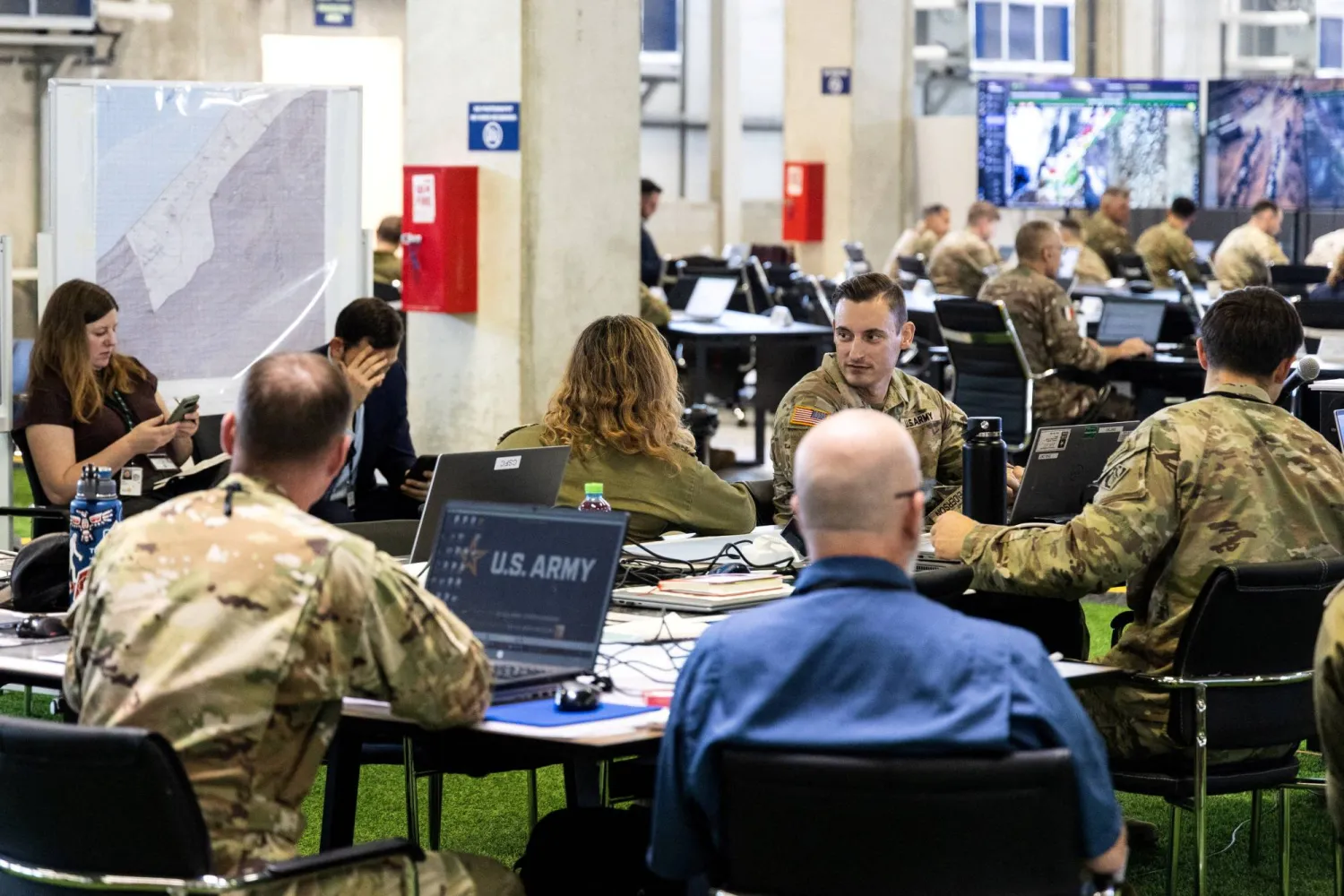The Jordanian army said on Monday its air defense radar system had detected suspicious aerial movements from an unknown source along the border with Syria, which a regional security source said were most probably missiles fired by pro-Iranian militias from Iraq.
Jets believed to be Jordanian had been heard hovering over the Jordanian city of Irbid and areas near the border crossing with Syria, witnesses said.
The army said an air force squadron had flown to ensure the airspace was not under any threat. It did not say from where the movements came, Reuters reported.
"The airforce responded to an alert of radar systems that monitored aerial movements whose source is not known," the army statement said.
In January three US service members were killed and as many as 34 wounded after a drone attack on a US outpost in Jordan that Washington linked to Iranian-backed militants.
Jordan has requested Patriot air defense systems from Washington, saying it fears being caught in the crossfire if the war in Gaza pulls in Iran and its well-armed regional militias on the kingdom's borders.
Another regional security source said two missiles that came from the direction of the Iraqi border in an area where pro-Iranian Shi'ite militias have a presence were intercepted.
"Regardless whether there were drones or missiles that were intercepted or fired or not, the risk of Jordan being caught in the crossfire can only increase if the war continues and expands," Saud Al Sharafat, former brigadier-general in Jordan's General Intelligence Directorate, said.
"The kingdom is located in an explosive region at the center of an exchange of drones and missiles fired by Iran's proxies in the region," Sharafat added.
Since the Israel-Hamas war in Gaza began in October, Iraq and Syria have witnessed tit-for-tat attacks between hardline Iran-backed armed groups and US forces stationed in the region.
Officials say Jordan's government, which signed a defense deal with the United States in January 2021, wants to bolster its defenses against Iranian-backed militias building up their strength on Jordan's borders with Iraq and Syria.
There have been several missiles fired by Yemen's Iran-backed Houthi group at Israel that were downed in the area of the Red Sea city of Eilat, which is located next to Jordan's border and its city of Aqaba.
The staunch US ally also says Iran is piling pressure with a relentless multi billion-dollar drug war along the border with Syria which it blames on Iranian-backed militias that hold sway in southern Syria.
Jordan has waged aerial strikes against Iranian-backed drug dealers' hideouts inside Syria, saying their border incursions posed a direct threat to its national security.
Iran says the allegations are part of Western plots against the country.
Jordan Army Says it Detected Suspicious Aerial Movements near Syria Border

(FILES) This file photo taken on August 1, 2021 shows Jordanian troops guarding the closed Jaber/Nassib border post on Jordan's border with Syria. (Photo by Khalil MAZRAAWI / AFP)

Jordan Army Says it Detected Suspicious Aerial Movements near Syria Border

(FILES) This file photo taken on August 1, 2021 shows Jordanian troops guarding the closed Jaber/Nassib border post on Jordan's border with Syria. (Photo by Khalil MAZRAAWI / AFP)
لم تشترك بعد
انشئ حساباً خاصاً بك لتحصل على أخبار مخصصة لك ولتتمتع بخاصية حفظ المقالات وتتلقى نشراتنا البريدية المتنوعة







